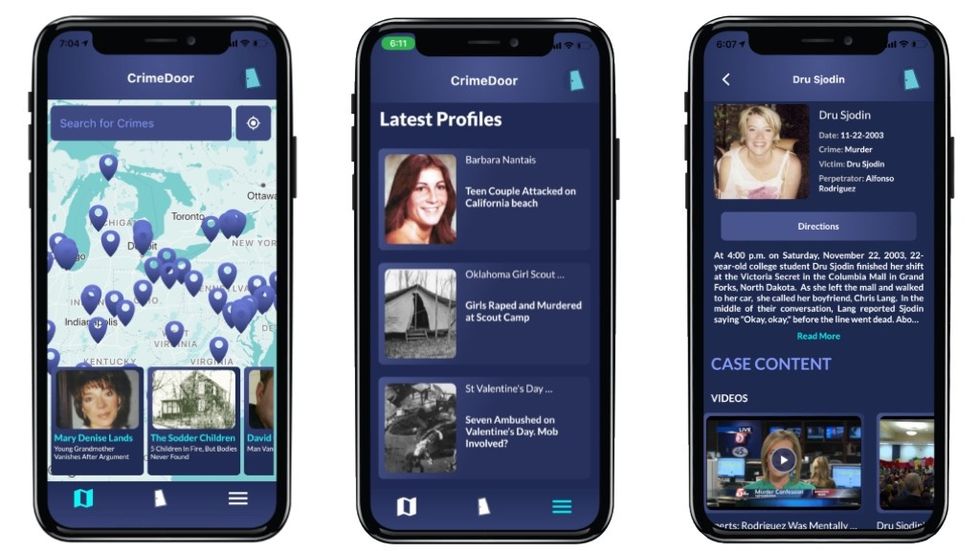Netflix’s show about serial killer Jeffrey Dahmer became the streamer’s second-most-viewed show within three weeks. Criticism of the lurid content quickly followed.
Eric Perry, whose cousin was killed by Dahmer, tweeted that his family found the content “retraumatizing.” Others have found fan responses, which often depict sympathy for the killer, to be in poor taste.
“Dahmer” is not the first show to explore the serial killer’s life, and it likely won’t be the last. But it comes at a time when criticism against true crime content is reaching a boiling over point.
The pushback extends beyond Netflix. Some have called out the integration of ads in between graphic content. Others believe Internet sleuths take their investigations too far. Even the once-popular trend of beauty YouTubers applying makeup while discussing crimes is facing opposition. And many say the genre tends to center white victims or criminals instead of BIPOC victims.
Part of the criticism stems from the sheer amount of true crime content being produced—at least 200 podcasts in the genre were launched between 2014 and 2020. Thousands of YouTubers and TikTok creators have made a name for themselves by recounting old crimes and investigating ongoing cases. Parrot Analytics found that there was a 63% increase in streaming documentaries between 2018 and 2021—and the vast majority of those documentaries cover true crime.
“We're living in an age of true crime on demand,” says California State University, Fullerton professor Adam Golub.
The problem, Golub says, is that some of the ways the internet engages with true crime oversimplify complex problems. Take the “cannibal challenge” on TikTok, where people dance to a Kesha song featuring the line “I'll pull a Jeffrey Dahmer”—a lyric that the singer’s mom has recently apologized for. Golub says people dancing to a song referencing Dahmer’s real-life cannibalism dilutes the actual crime.
The blasé approach some content creators take has, however, convinced some to stop consuming this content. One TikTok user said they “literally can’t stomach” the genre after considering how YouTubers casually discuss murder—a sentiment shared by others. On Reddit, one user claimed to be “embarrassed” over having ever enjoyed true crime after seeing shirts featuring phrases like “Dahmer’s Deli.”
At the very least, “Dahmer” has led more people to question their true crime consumption habits. Families of the Dahmer victims sharing their discomfort with the series led one Twitter user to stop interacting with true crime content. Other former fans find the show is prolonging the serial killer’s legacy. A viewer who says they have been moving away from true crime content, tweeted that the show “felt horribly disgusting.” And for another, the show was a turning point to reconsider how true crime has become a cornerstone of pop culture. Her conclusion: “We can’t shy away from the facts anymore — true crime has become entertainment.”
But the problems with true crime consumption don’t end there. While Netflix series take quite a bit of time and effort to make, the same cannot be said for podcasts and other online content. Golub says this ease of use has led to an influx in the genre—and not all of it is high quality.
“If you're just going to do a podcast or a TED Talk where you're reading the Wikipedia page about your murderer, how much are you really contributing to our cultural knowledge and to our attempt to interpret the significance and meaning of crime?” Golub says.
Though most true crime fans focus more on the content creators and their storytelling dynamics instead of the lurid details, others take their fandom further. Groups of Tumblr users made themselves notorious for fawning over killers ranging from the Columbine shooters to Ted Bundy. Etsy hosts pages of merchandise with witty quips and mug shots that seem to make light of their crime. Now, as some true crime fans congregate on TikTok, videos about Evan Peters’ performance as Jeffrey Dahmer range from sympathetic to lustful.
Pamela J., who posts on TikTok as MissPamelaJ, has based her platform on calling out those who participate in this romanticization—a subcategory of true crime fans she says is distinct from those who consume this content in more measured ways. Most recently, her videos about responses to “Dahmer” have gone viral, with many highlighting how some viewers gloss over his actions.
Still, even as some fans view the genre with heightened criticism, it’s unlikely that the content creators are going to change course any time soon. In October alone, Netflix is adding 95 new documentaries to its platforms, a number of which deal with murder cases.
But there’s also evidence that the criticism is going to continue. Lifetime’s film about Gabby Petito, is already facing pushback over the production quickly capitalizing on the headline-catching case without involving Petito’s family. And after Betsy Faria’s daughter encouraged people not to watch a new fictionalized account about her mother’s murder, families took to social media to encourage others to boycott “The Thing About Pam”—a show following the perspective of Faria’s murderer.
Which is to say that as true crime turns killers into thirst traps and accessories, more people are starting to wonder how to engage with the genre.
- CrimeDoor App Aims to Solve Cold Cases, Change True Crime - dot ... ›
- Pasithea Opens a Ketamine Clinic In Beverly Hills - dot.LA ›
- CrimeDoor's AR App Gets a Boost From Adnan Syed's Release - dot ... ›



